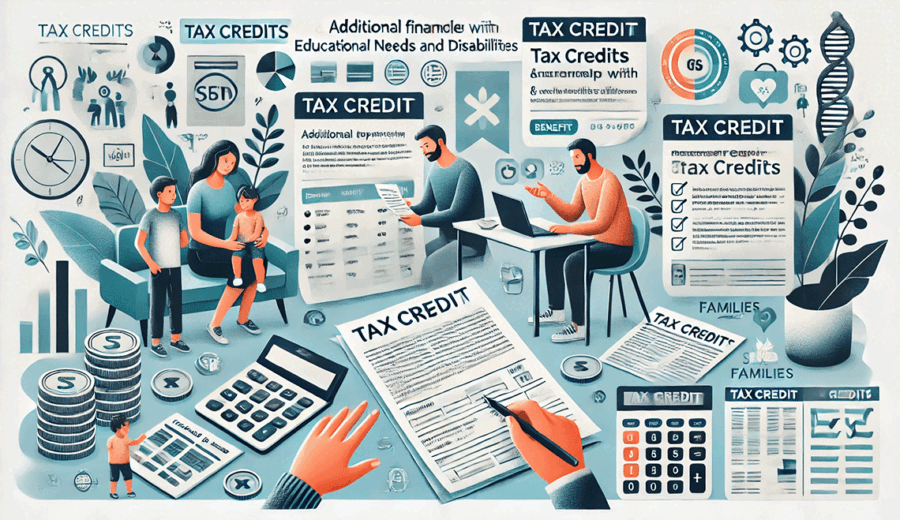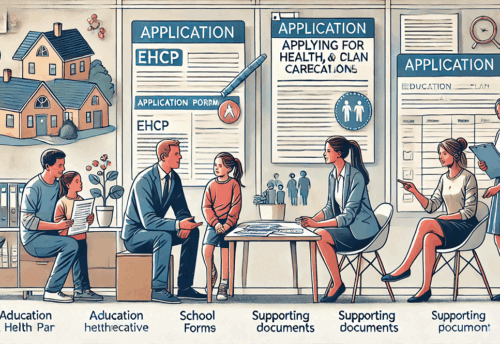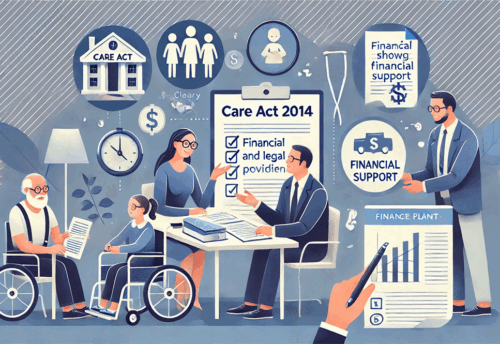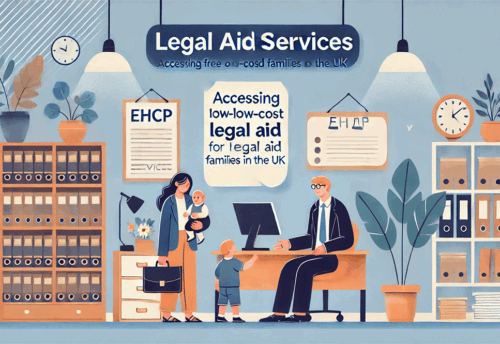
November 27, 2024
Tax Credits and Additional Financial Help
Tax Credits and Additional Financial Help for Families with SEND Children
Raising a child with special educational needs and disabilities (SEND) often comes with additional financial challenges. Families in the UK can access tax credits and other financial benefits to help manage these expenses. Here’s a comprehensive guide:
1. Tax Credits for SEND Families
1.1 Child Tax Credit (CTC)
- Designed to support families with children, including those with SEND.
- Eligibility: Families with an annual income below a specific threshold (dependent on the number of children and other circumstances).
- Extra Support for Disabled Children:
- Additional amounts for children receiving Disability Living Allowance (DLA) or Personal Independence Payment (PIP).
1.2 Universal Credit (UC)
- Replacing Child Tax Credit for new claimants, Universal Credit provides:
- A disabled child addition for families with children receiving DLA or PIP.
- Monthly payments to help cover living costs, adjusted for income and family size.
1.3 Working Tax Credit (WTC)
- Supports parents working at least a set number of hours weekly.
- Disability Element:
- Available if a parent or guardian has a disability affecting work and is receiving certain benefits.
2. Additional Financial Help
2.1 Disability Living Allowance (DLA)
- A non-means-tested benefit for children under 16 with disabilities.
- Care Component: Helps with personal care needs.
- Mobility Component: Supports children with significant mobility challenges.
2.2 Personal Independence Payment (PIP)
- For individuals over 16 with disabilities affecting daily living or mobility.
- Helps families with older children transitioning from DLA.
2.3 Carer’s Allowance
- A benefit for parents or caregivers providing at least 35 hours of care per week.
- Earnings Threshold:
- Eligibility depends on income, with adjustments for part-time work.
2.4 Childcare Costs
- Tax-Free Childcare:
- Covers up to 85% of childcare costs for eligible families.
- SEND children qualify until the age of 16, compared to 12 for non-SEND children.
- Childcare Grants:
- Provided by local authorities or charities to cover additional childcare needs.
2.5 Disabled Facilities Grant (DFG)
- Financial support for home adaptations, such as installing ramps or accessible bathrooms.
3. Applying for Tax Credits and Benefits
3.1 Gather Necessary Documentation
- Birth certificate and proof of disability (e.g., DLA or PIP award letters).
- Financial documents like income statements and tax returns.
3.2 Contact HMRC or Local Authorities
- Applications for tax credits are managed by HM Revenue and Customs (HMRC).
- Universal Credit applications are processed online through the government portal.
3.3 Seek Professional Guidance
- Advocacy services like Citizens Advice and Contact can assist with applications and appeals.
4. Maximizing Financial Support
4.1 Regular Reviews
- Review benefits annually to ensure eligibility for maximum support.
- Report changes in circumstances, such as additional expenses or medical needs.
4.2 Explore Charitable Grants
- Charities like Family Fund and Scope offer financial assistance for equipment, therapies, and holidays.
4.3 Tax Relief Options
- Claim relief for additional expenses, such as specialized clothing, transport, or equipment.
5. Understanding Your Rights
5.1 Legal Framework
- The Equality Act 2010 protects families from discrimination in accessing benefits.
- Families can challenge decisions through appeals or tribunals.
5.2 Advocacy Support
- Organizations like IPSEA and SENDIASS provide free advice on navigating financial systems.
6. Common Challenges and Solutions
6.1 Complex Applications
- Use benefit calculators like those on Turn2us to determine eligibility.
- Seek help from professionals for completing forms.
6.2 Delayed Payments
- Follow up with relevant departments to address processing delays.
- Request interim support from local charities or councils.
6.3 Overpayment Recovery
- If overpayments occur, negotiate repayment plans or request waivers in cases of financial hardship.
7. Key Resources for Families
- HMRC Helpline: For tax credit inquiries.
- Universal Credit Online Portal: For new claims and updates.
- Turn2us: Offers tools to identify available benefits and grants.
- Contact: Provides tailored support for SEND families navigating financial challenges.
8. Final Tips
- Stay informed about changes to benefit systems, such as the ongoing transition to Universal Credit.
- Maintain thorough records of correspondence and applications.
- Engage with support groups to share experiences and insights.





Leave a Reply